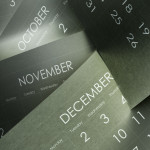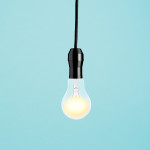When Kim Hunter started her first HIV regimen, shortly after her 1988 diagnosis, she experienced an all-too-common HIV side effect: nausea. New-med nausea is often temporary, but for Hunter, the awful feeling just wouldn’t go away. It got even worse nine years later, Hunter says, when she switched to a new combo including a med notorious for its nauseating taste. “Liquid Norvir—full strength, not the booster dose—made me really nauseated. Luckily, I lived a block from my job,” she says, “so I could leave work and get home just in time when I had to vomit.”
Liquid Norvir isn’t prescribed for adults anymore, and newer HIV meds are often easier to tolerate. Yet many positive people still suffer nausea in silence, finding ever more clever ways of dealing with the misery amid their daily routines. Indeed, HIV-related nausea is often deemed untreatable and unavoidable, an inescapable fact of living with the virus. Believing there’s little to be done, positive people often don’t even tell their doctors they’re experiencing it. Providers, in turn, may think other side effects take higher priority. It all recalls Mark Twain’s famous quip about the weather: “Everybody complains about [it], but nobody does anything about it.”
Hunter, who manages the Office of Women’s Health at Hyacinth AIDS Foudation in Newark, New Jersey, did take the first important step by talking to her doctor. But the doc had little to suggest beyond patience. Few remedies were available other than antinausea drugs, which carry their own side effects (including drowsiness). “All I could do,” Hunter says, “was to eat some dry crackers.”
If Joyce Anastasi, PhD, a researcher at Columbia University’s Center for AIDS Research, has her way, HIV-positive people won’t have to weather Hunter’s years of misery. An HIV nurse since the early 1980s, Anastasi knows that nausea can make life with HIV unmanageable—even today, when we constantly hear that it’s a manageable disease. She cites a study listing nausea among the 12 most common and bothersome HIV symptoms (“I don’t like to call them complaints,” she says), and she insists that you do not have to accept a life of queasiness.
“Many people feel that it’s not important enough to tell my very busy health care provider,” Anastasi says, “but nausea prevents them even from leaving their houses.” It may also cause dangerous weight loss (because people feel too ill to eat) and prevent adherence to HIV med dosing. She urges positive people and health care providers to take nausea seriously—and tackle it together.
To make a discussion with your provider most productive, keep a nausea diary, Anastasi recommends. “Be specific about what you’re feeling,” she says, “and note frequency and duration.” List any meds you took or what you ate—or anything else that increased or lessened nausea. A diary will help you convince your provider that your nausea needs attention; it will also help determine what further tests you might need—and suggest possible remedies.
Queasy Causes
“With HIV,” Anastasi says, “nausea is not simple—it can have several causes at once.” Topping the list are side effects of drugs for HIV and other health conditions. Anastasi names “changes associated with HIV in the gut” as number two, adding that these can range from inflammation to HIV’s effect on the organs’ ability to function properly. The virus’s impact on the endocrine system is a third cause.
For nausea from meds, changing your combo is an answer. If you can’t do that, or if the nausea stems from other causes, a host of simple remedies may help (see sidebar). And there is one intervention in particular that shows great promise: acupuncture.
Puncturing the Myths
In talks with groups of positive people, Anastasi says, one message came across: “People said they didn’t want another pill. They wanted a holistic approach—something that would offer overall improvement and alleviate nausea.” Acupuncture was a clear choice, she says, because “there is evidence that acupuncture is effective in treating nausea caused by chemotherapy and morning sickness.”
Acupuncture operates on the theory that your body’s energy (qi, pronounced “chee”) has a basic balance and flow. When you are nauseated, stomach energy is misdirected, traveling up instead of down. Therefore, the energy flow among organs may be off-kilter. Acupuncture, which uses tiny needles to redirect and balance that energy, soothes nausea. It may take a few sessions or, for more chronic cases, a longer series.
Anastasi has conducted trials showing acupuncture’s efficacy for HIV diarrhea and other ailments, and she now leads a study for nausea (see below). She says that positive results of this trial could help people get insurance to pay for acupuncture treatments. Acupuncture for chemotherapy nausea is often approved for insurance coverage, she says, and “people might try claiming that HIV meds can be defined as chemotherapy to get treatments covered now.”
Hunter says her nausea is much less frequent now that she takes only the low booster dose of Norvir. “Only if I forget and eat a fatty dinner before I take my meds do I suffer now,” she says. “I’m happy to say nausea is a thing of my past.”
If you suffer from nausea and want to join Anastasi’s randomized controlled acupuncture trial, call the Center for AIDS Research in New York City, 212.305.3041.
NAUSEA TIPS
Some as close as your kitchen cabinet:
Tactics
If possible, see a nutritionist. Eat small, frequent meals—keep your stomach neither empty nor overfull. Avoid high-fat foods, acidic ones such as tomatoes or vinaigrette dressings, and hot foods with heavy aromas. Choose bland foods at room temp. Always eat sitting up, and don’t lie down afterward (or while you’re nauseated).
Herbs and spices
Peppermint, cinnamon (suck on the sticks) and ginger root (peel and suck on it or use it to brew tea) can help. Joyce Anastasi, PhD, who teaches health care providers about herbal benefits and dangers, says, “Inform your provider of any herbs you take—herbs can alter your lab values.”
Marijuana
Evidence has shown that marijuana eases nausea; that’s one argument for medical marijuana (see page 51). Anastasi adds, though, that it has side effects, including sleepiness.
Snacks
Pretzels or dry crackers settle the stomach. In one study, a probiotic yogurt (with active cultures; see page 50) calmed nausea as well as diarrhea.
Liquids
Sip water or hot tea; don’t risk becoming dehydrated, which will only worsen nausea.
Candies
Try strongly flavored ginger candies (available in health food stores) or Queasy Pops and Drops—hard candies used for morning sickness —to quell nausea (threelollies.com; 866.773.4443).
Accessories
Acupressure can help. Sea bands—elastic wristlets with a stud to massage a point on your inner wrist—are sold in drug stores (about $11) for motion or morning sickness.
Stomaching Nausea
Living with HIV doesn’t mean you have to live with its seemingly unavoidable partner, nausea.






1 Comment
1 Comment